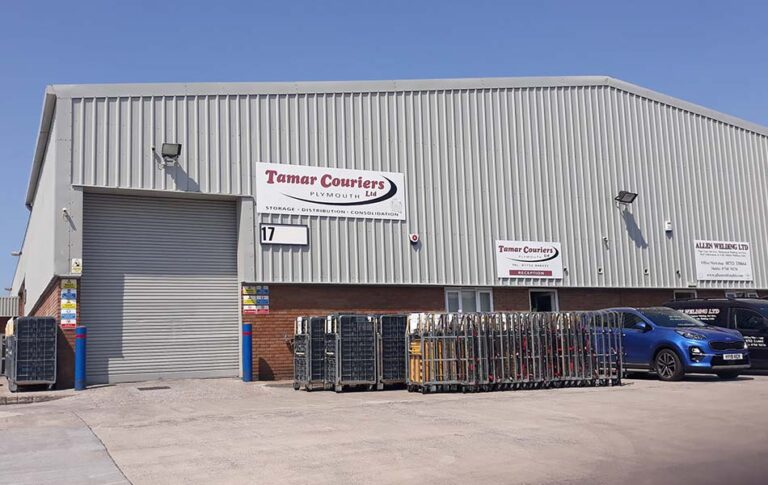Letting & Leasing
Our commercial property Agency team have been working with landlords and occupiers for over 30 years.
Home / Services / Commercial Sales, Lettings & Acquisitions / Letting & Leasing
Are you looking to let or lease a commercial property?
We understand how important it is for landlords to have maximum occupancy rates and to receive the best return on their investments that they can. We also understand that tenants want quality premises at the best market rates.

Whether we’re working with you as a landlord or a potential tenant, we offer impartial advice on rents and market rates based on our in-depth knowledge of the letting market in the South West. We have commercial agents based all around the South West so local knowledge is on hand and shared across our 4 offices.
Not only that, but Vickery Holman is the largest multi-disciplinary team of surveyors in the South West so we have a lot of expertise across our teams. Once you work with us, you don’t need to look elsewhere for help with property management, building surveys, valuations, business rates, lease advisory or disputes .
If you’d like to look at our extensive range of commercial properties available to let, please click here.
Take a look at our Lease Advisory services, we know that the team would be happy to help you with any lease renewals or rent reviews.
Our Property Management team would be very happy to talk to you about your property portfolio and how they can help you manage your investment efficiently and effectively.
Building Surveying is a core service for Vickery Holman. Your property investments are likely to need constant maintenance and developing a long term relationship with a surveyor who understands your property and your ambitions can save you a lot of time and expense.
Key Contacts
Commercial Agency Case Studies
Letting and Leasing FAQs
How do I know if the rent is good value?
Determining what constitutes good value for commercial property rent in the UK involves several factors and considerations:
Location: The location of the property plays a significant role in determining its value. Properties in prime locations, such as city centers or areas with high foot traffic, tend to command higher rents. Evaluate the accessibility, visibility, and proximity to amenities and transport links.
Comparable Rents: Research similar properties in the same area to understand the going market rates. Look at properties of similar size, type, and condition to gauge what is considered a fair rent.
Condition and Amenities: Consider the condition of the property and the amenities it offers. Properties with modern facilities, ample parking, security features, and other desirable amenities may justify higher rents.
Demand and Supply: Analyze the demand and supply dynamics in the area. If there’s high demand for commercial properties in a particular location and limited availability, landlords may be able to command higher rents.
Lease Terms: Review the lease terms carefully. Factors such as lease length, rent escalation clauses, and any additional fees or responsibilities can impact the overall value proposition. Negotiate favorable terms wherever possible.
Return on Investment: Evaluate the potential return on investment (ROI) from the property. Calculate the rental yield by dividing the annual rent by the property’s value. Compare this yield with other investment opportunities to assess its attractiveness.
Future Growth Potential: Consider the potential for future growth in the area. Factors such as planned developments, infrastructure projects, and economic trends can influence property values and rental demand over time.
Professional Advice: It’s advisable to seek professional advice from commercial real estate agents, property surveyors, or legal experts specializing in commercial property. They can provide insights into market trends, property valuation, and negotiation strategies.
How long does is take to agree a lease?
Complexity of the Lease: The complexity of the lease agreement can significantly affect the negotiation timeline. If the lease terms are straightforward with minimal customisation, the process may be relatively quick. However, if there are numerous clauses to negotiate, such as rent escalation mechanisms, repair obligations, break clauses, or tenant improvements, it can extend the negotiation process.
Tenant and Landlord Requirements: The negotiation timeline can also be influenced by the specific requirements and priorities of both the tenant and the landlord. If there are significant differences in expectations or if either party requires approvals from higher authorities or legal counsel, it can prolong the negotiation process.
Market Conditions: Market conditions can impact the negotiation timeline as well. In a competitive market where demand for commercial properties is high, landlords may have less incentive to negotiate terms quickly. Conversely, in a softer market where properties are in abundance, landlords may be more willing to accommodate tenant requests to secure a lease.
Legal and Professional Advice: Both parties may seek legal and professional advice during the negotiation process, which can add time to the overall timeline. Lawyers and commercial real estate advisors may need to review and revise lease drafts, provide guidance on legal implications, and facilitate communication between parties.
Tenant Improvements and Fit-Outs: If the tenant requires specific improvements or fit-outs to the property before occupying it, this can extend the negotiation timeline. Negotiations surrounding who will bear the cost, the scope of work, and the timeline for completion can add complexity to the lease agreement.
Due Diligence: Both parties may conduct due diligence before finalizing the lease terms. This could involve property inspections, financial checks, or legal reviews, which can take time depending on the complexity of the transaction.
Overall, while some lease agreements can be finalised relatively quickly within a matter of weeks, others may take several months, especially if there are multiple rounds of negotiation or if external factors delay the process.
What should I consider as part of my lease responsibilities?
Understanding your responsibilities within a commercial property lease in the UK is crucial for ensuring compliance and managing your obligations effectively. Here are some steps to help you determine what should be included:
Review the Lease Agreement: Carefully review the lease agreement provided by the landlord or their agent. This document outlines the rights and responsibilities of both parties regarding the use and occupation of the premises. Pay close attention to clauses related to responsibilities, obligations, and liabilities.
Consult Legal Advice: It’s highly advisable to seek legal advice from a solicitor or commercial property lawyer specializing in lease agreements. They can help you understand the terms of the lease, identify any potential pitfalls or areas of concern, and ensure that your rights are adequately protected.
Identify Repair and Maintenance Obligations: One of the key responsibilities of a commercial tenant is often the repair and maintenance of the premises. Review the lease to determine which party is responsible for specific repairs, such as structural repairs, maintenance of internal fixtures and fittings, and compliance with health and safety regulations.
Understand Service Charge Provisions: If the property is part of a larger development or complex, there may be service charge provisions in the lease. This covers the cost of maintaining shared areas, such as common parts, landscaping, security, and utilities. Understand what services are covered, how the charges are calculated, and your contribution obligations.
Check Insurance Requirements: The lease may specify insurance requirements, including the types of insurance coverage you need to maintain for the premises. This could include buildings insurance, public liability insurance, and contents insurance. Ensure that you understand your insurance obligations and that you comply with them.
Verify Compliance Obligations: Understand any compliance obligations imposed by the lease, such as obtaining necessary licenses, permits, or consents for your business operations. This could include planning permissions, building regulations, environmental permits, or health and safety regulations.
Consider Alterations and Use Restrictions: Review any clauses related to alterations, modifications, or changes to the premises. Understand what permissions you need from the landlord, local authorities, or other relevant parties before making any alterations. Additionally, check for any restrictions on the permitted use of the premises to ensure that your business activities comply with the lease terms.
Budget for Additional Costs: Anticipate and budget for additional costs associated with your responsibilities under the lease, such as repairs, maintenance, service charges, insurance premiums, and any other ongoing expenses.
By thoroughly reviewing the lease agreement, seeking legal advice, and understanding your obligations, you can ensure that you fulfill your responsibilities as a commercial tenant in the UK.
Understanding your responsibilities within a commercial property lease in the UK is crucial for ensuring compliance and managing your obligations effectively.
What should I do if my business stops trading?
If your business closes during the term of the lease for a commercial premises, you still have certain obligations and options to consider:
Review the Lease Agreement: Carefully review the terms of your lease agreement to understand your rights and obligations in case of business closure. Pay attention to clauses related to termination, assignment, subletting, and break options.
Notify the Landlord: Inform the landlord or their agent as soon as possible about the closure of your business. This may be a requirement stipulated in the lease agreement. Provide written notice of your intention to terminate the lease or discuss alternative arrangements if necessary.
Negotiate with the Landlord: Consider negotiating with the landlord to find a mutually acceptable solution. Depending on the circumstances, the landlord may be willing to agree to an early termination of the lease, assign the lease to a new tenant, or allow subletting of the premises. Be transparent about your situation and willing to cooperate to reach a resolution.
Explore Subletting or Assigning the Lease: If permitted under the terms of your lease, you may explore subletting the premises to another tenant or assigning the lease to a third party. This can help you mitigate the financial impact of the closure by finding someone else to take over the lease obligations.
Consider Lease Surrender: In some cases, you may negotiate with the landlord to surrender the lease voluntarily. This involves reaching an agreement to terminate the lease before its scheduled expiry date. Be aware that the landlord may require compensation for early termination, such as payment of rent or other costs.
Seek Legal Advice: Consider seeking legal advice from a solicitor or commercial property lawyer to understand your rights and obligations under the lease agreement. They can provide guidance on the best course of action based on your specific circumstances and help you navigate negotiations with the landlord.
Minimise Liabilities: Take steps to minimise your liabilities under the lease, such as ensuring that the premises are returned in good condition and complying with any notice or formalities required by the lease agreement.
It’s essential to communicate openly and proactively with the landlord throughout the process to avoid any misunderstandings or disputes. By addressing the situation promptly and exploring available options, you can mitigate the impact of your business closure on your lease obligations.








